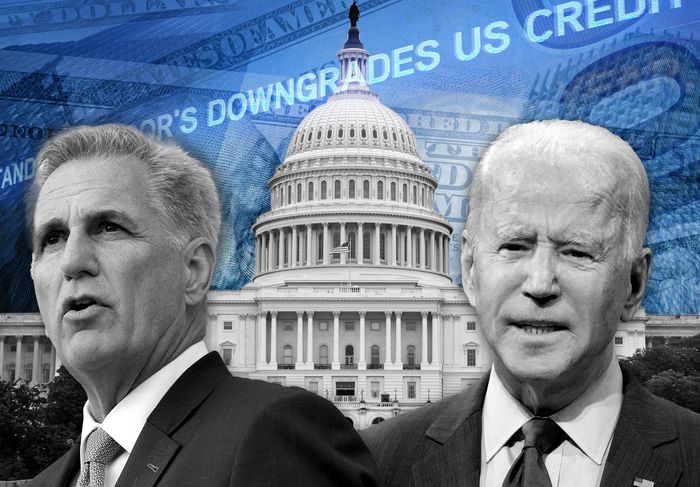Debate forms over U.S. debt ceiling as economic default approaches
Image credited to MarketWatch.
House speaker Kevin McCarthy is leading the debate to lower spending.
With the U.S. approaching its debt limit, an argument has sparked about whether to just increase the borrowing limit, as recommended by Democrats or to decrease spending, as advocated for by Republicans. On May 8, both sides met and had a discussion about the path forward, although no real progress has been made, according to The Hill.
“I think there will be a compromise, I don’t know if it’ll be by June 1,” Social Studies teacher Kristy Pommerenke-Schneider said.
On Jan. 19, the United States hit its national debt ceiling of $31.4 trillion, an amount of debt almost four times higher than the country with the second most debt in the world (The United Kingdom) which has only $8 trillion of debt. Hitting the debt ceiling has many downsides with it. The big one is that if the U.S. can’t afford its debt anymore, it will need to start getting a lot of loans and start to run out of money to fund the federal government, which means less money for defense, social welfare, medicare and just about anything government provided.
Since the U.S. hit its debt ceiling, the treasury has resorted to extreme measures to keep paying social security and keep the government working. According to thestreet, those measures will run out on June 1 and the U.S. will be at risk of defaulting on its debt, as well as possibly running out of money to fund the government. The U.S. defaulting would send shockwaves throughout the global economy, affecting every corner of the world that receives economic aid from the U.S.

Henry Rothenbach is a junior at Niles North who has been with North Star News since freshman year. He enjoys reading and writing in his free time.







